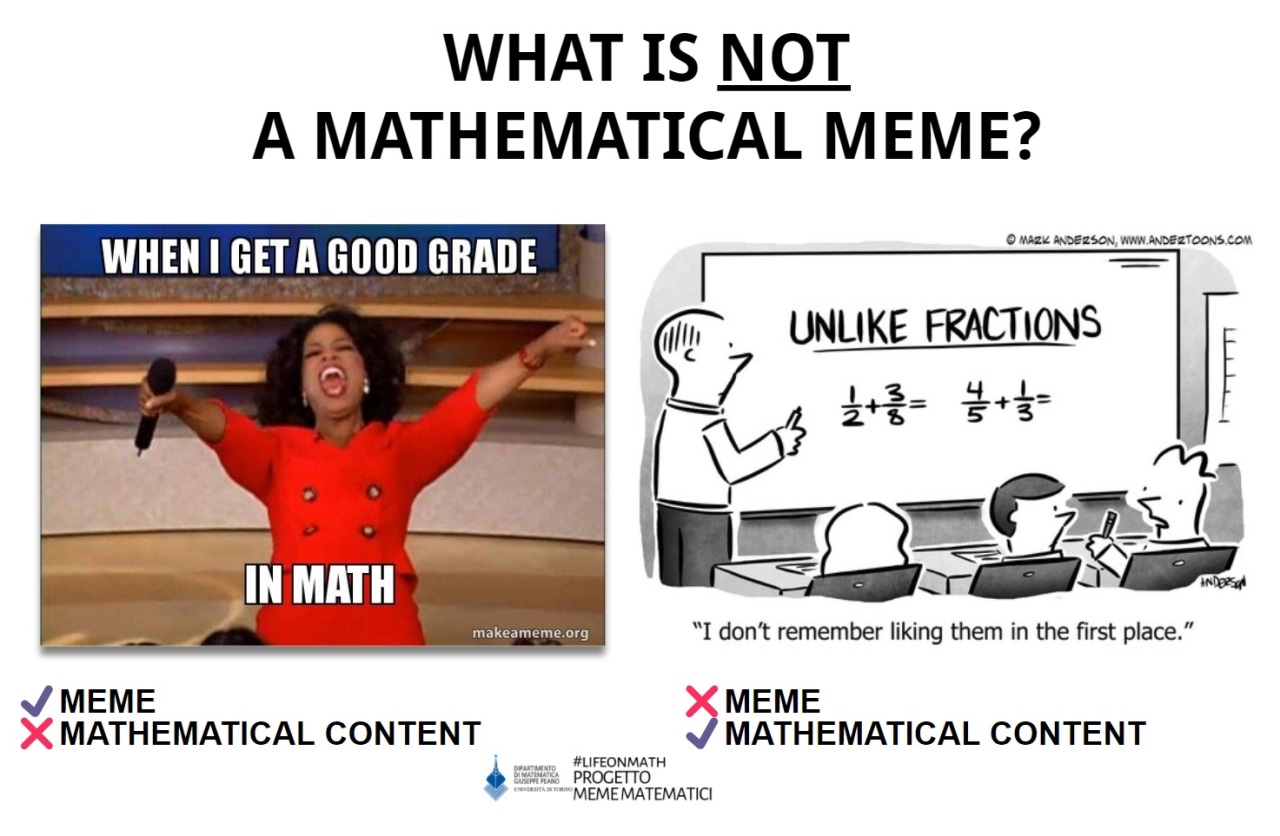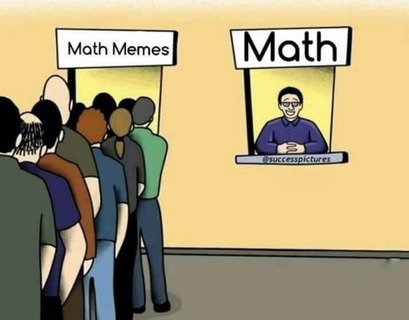Dr. Giulia Bini is not your ordinary math and physics teacher. Her doctoral research has taken her down a unique path – exploring the world of internet memes and their potential impact on math education. In an interview, I got a chance to learn more about Dr. Bini’s research and how she believes memes can facilitate interest in math. Join me as I dive into the fascinating world of math memes.
How did Dr. Bini become interested in math memes?
Before embarking on a Ph.D. in math education at the University of Turin, Dr. Giulia Bini was a math and physics teacher for 25 years in a Liceo Scientifico, a type of secondary school in Italy. During her time as a teacher, Dr. Bini was always experimenting with new and innovative ways to teach mathematical concepts.
One day, a student of Dr. Bini showed her an internet meme about analytic geometry. The student claimed that this meme made them understand the topic better than the class she taught. Once she got over the initial shock that a meme outperformed her abilities as a math teacher, Dr. Bini began to explore the implementation of internet memes as educational resources in the classroom.
What are mathematical memes?
Dr. Bini’s research focuses on deconstructing the phenomenon of mathematical memes. According to her, math memes can be defined by two necessary features:
- Mathematical content in which background math knowledge must be used for a meaning to emerge
- Employment of existing structural and social meanings embedded in popular internet memes.

How are math memes similar and different from other memes?
Math memes are a sub-genre of a larger domain of digital artifacts. For the most part, they are very similar to other types of internet memes. To highlight what makes math memes unique, Dr. Bini uses a paradigm she calls the triple-S construct of partial meanings. The triple-S construct claims that all internet memes have three partial meanings: social, structural, and specialized meanings.


Social Meaning
The social meaning of a meme contains all of the information that is attributed to a meme’s pictorial elements. Social meaning is recognizable as it is shared by all the consumers and producers of a particular meme template. In this case, the mother, daughter, and the drowning son have a reproducible social meaning that is stable across different iterations of this template.
Structural Meaning
The structural meaning of a meme is the “grammar” or the compositional rules associated with a meme. This includes how to arrange the text, which font to use, how to label objects, and how to deliver the punchline. The structural meanings of memes are also collectively shared in the internet meme community. The structural meaning of a meme governs how to compose new memes and how to remix effectively.
Specialized Meaning
Finally, the last “s” in the triple-s theory is specialized meaning. While social and structural meanings are shared across different iterations of a meme template, the specialized meaning differs for each meme. In this example, the specialized meaning refers to the common mistake of leaving out 2ab when solving the equation (a+2)2.
Putting them all together
While math memes share social and structural meanings with other types of memes, their specialized meanings always refer to a mathematical problem or concept. So, math memes are actually mathematical statements in disguise. Math memes include a proposition that evokes a “proof” in order to judge the truth value. This is why knowledge of mathematical concepts is key to unlocking math memes.
In addition, a breakdown in the social or structural meaning of a meme results in the inability to understand a meme’s full meaning. Unlike other mathematical statements that use pen and paper, math memes use socially defined images and structures to make propositions. Even if someone has the mathematical knowledge to interpret the concept represented in a math meme, they also need the social meanings of the images and the structural meaning of the composition to read the meme properly.
Why Should We Care About Math Memes?
In mathematics education, capturing the engagement of students is the key to success. Traditional math classes offer lessons using only the tools from a specialized meaning domain. Often, students approach math concepts without any real foundation in their interests or expertise. Math memes make mathematical concepts more approachable as they include the social and structural information of memes that students acquire outside of the classroom. They bring the culture of the internet into the world of mathematics.
Memes also produce pleasure, excitement, and humor when they are solved. This, combined with the aesthetic pleasure derived from mathematics, can be a powerful hook for students. The pleasure gained from learning can increase the intrinsic motivation of students to push the boundaries of their knowledge of mathematics.
What more is there to explore in this field?
Dr. Bini has encouraged many teachers to include math memes as teaching tools in their classrooms. Though she has outputted many research projects around this topic, she believes there is more to investigate.
Dr. Bini and I were particularly interested in meme creators, specially how someone can take the social and structural meaning of a meme template and produce a math meme. Is this creation ability a top-down process where the creator has an idea and finds the best template to express it? Is it a bottom-up process where the creator finds the inspiration for an idea from an available collection of meme images? Does it differ from person to person or can it even differ even within an individual? These are super interesting questions that don’t have answers…yet.
Thank you, Dr. Giulia Bini for letting me interview you. If you or someone you know researches internet memes, digital culture, aesthetics, or cognitive science, please feel free to reach out to me for an interview!
